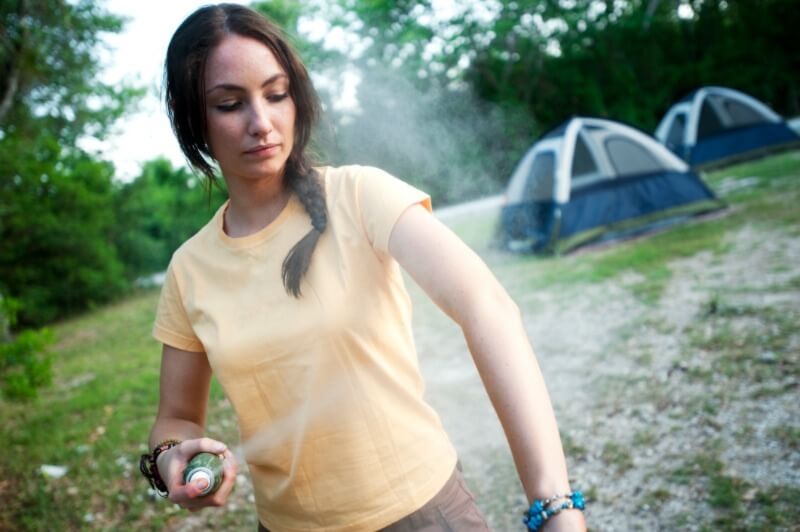It’s mosquito season: 5 tips for preventing bites
- Category: Community, Health & Wellness, Healthy Living
- Posted on:

Ahh, summer. In Louisiana, that means a whole season of long sunny days, warm Southern nights, festivals, family vacations, and so much more to love.
But as residents and visitors know, summer here is not all sunshine and Sno-balls… thanks to our humid climate and region, Louisiana is also a hotspot for mosquitos during the summer months.
Summertime, and the living is… itchy
If you spend any time outdoors during the summer season, you’re probably all too familiar with the annoyance of mosquitos. But did you know that in addition to their irritating buzzing and itchy bites, mosquitos can also be dangerous to our health?
When a mosquito bites you, it also injects its saliva in your bloodstream, causing an allergic reaction for many humans. This reaction is what causes those red, itching bumps at the site of the bite.
In addition to causing swelling and scratching, mosquitos can also transfer diseases when they bite, including West Nile, Zika, and Malaria. Because mosquitos thrive in warm, wet weather, they run rampant in the southern region of the United States, and Louisiana residents need to be extra careful about protecting themselves from disease risk (and excessive itchiness) due to these pests.

5 tips for surviving skeeter season
Although these tiny bugs are annoying and can feel unavoidable, there are many things you can do to reduce and prevent bites. Here are some top tips for how to make your summer months as itch-free as possible:
Use bug spray or repellant before heading outside
Before heading outdoors this summer, be sure to use bug spray or repellant. When choosing a spray, look for Environmental Protection Agency (EPA)-registered insect repellants, which are proven to be safe and effective. Your spray should include DEET, Picaridin, or Oil of Lemon Eucalyptus (OLE) as an active ingredient.
Note: If you are pregnant or breastfeeding, check with your doctor before using bug spray products.
Cover up your kids (and yourself)
Dress children in clothes that cover their arms and legs, to limit the amount of skin exposed to bugs and bites. This tip extends to grown-ups, too. Be sure to choose clothing options with cool, light-weight fabrics to avoid overheating during warm summer weather.
If you have a little one using a stroller or crib, you can cover it using mosquito netting. Do not use insect repellant or spray on babies under 2 months old!
Seal gaps in your home
It’s a good idea to install or repair window and door screens in your home, to prevent insects from slipping through the cracks and invading your space. Whenever possible, use air conditioning to cool your home and avoid opening windows and doors.
If mosquitos invade, try insecticide
If mosquitos have invaded your home, you can use an indoor insect fogger or indoor insect spray to treat the areas where they rest. These products work quickly and effectively, but you may need to keep reapplying for the best effects. When using insecticides, it’s important to always follow label directions.
Get rid of standing water in your yard
Mosquitos love to rest in dark, humid areas—think under your deck, beneath patio furniture, or tucked away in your garage. Though it can be difficult, try to keep these spaces as dry and sealed as possible. Because mosquitos like to lay their eggs near water, you should empty and scrub any items that hold water in your yard, such as buckets or planters, at least once a week. Tightly cover water storage containers so that mosquitos cannot get inside to lay eggs. For containers without lids, you can use wire mesh with holes small enough to keep out an adult mosquito.
Are you a mosquito season expert? Click here to test your skeeter smarts with our quiz on mosquito-born diseases.

